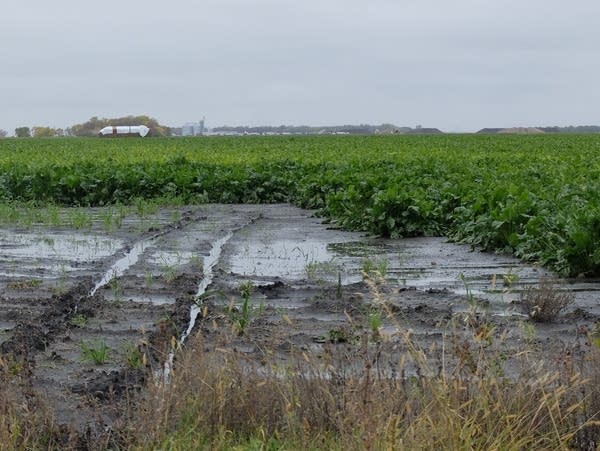North Dakota governor declares a statewide flood emergency

Go Deeper.
Create an account or log in to save stories.
Like this?
Thanks for liking this story! We have added it to a list of your favorite stories.
North Dakota Governor Doug Burgum has declared a statewide flood emergency in response to unprecedented fall flooding. Many rivers in the Red River Valley are at historic levels for this time of year, and more rain is expected this week.
While river levels are not expected to pose significant risk to communities, Burgum said fall flooding can have more widespread economic effect.
"What's unprecedented about it is we've got literally billions of dollars of agriculture value that is unharvested in the fields and that creates a risk potential for us, not just cities and people and infrastucture, but there's an economic hardship that we're facing here," Burgum told local officials at a listening session in Fargo Monday morning.
North Dakota ag commissioner Doug Goehring said the Red River Valley is a major soybean producing area, and much of the crop is at risk.
Turn Up Your Support
MPR News helps you turn down the noise and build shared understanding. Turn up your support for this public resource and keep trusted journalism accessible to all.
"We probably have in western Minnesota and North Dakota about two billion dollars worth of soybeans that are sitting in water or at least in conditions which may not allow producers to get out there and get them anytime soon," said Goehring.
Goehring is also concerned livestock farmers and ranchers will run short of feed this winter because more than 90 percent of corn used for cattle feed has not be harvested and hay crops have been damaged by floodwater.
There's also concern the late fall flooding will create problems for spring planting next year. Many farmers apply some of their fertilizer in the fall, but Burgum said that hasn't happened this year.
"So that creates supply chain issues in terms of having enough supply next spring, and the time and field conditions to actually get it on. We're really stacking up for creating challenges for next year," said Burgum.
North Dakota officials are doing damage assessments and plan to seek a federal disaster declaration as well as disaster assistance from USDA.


